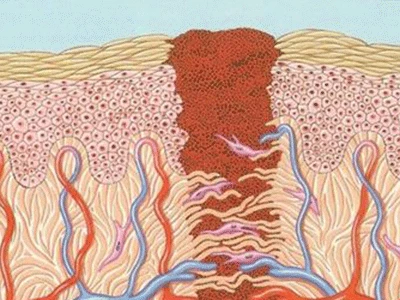Studies have found that p63 transcription factor plays a key role in skin cell formation iCell Bioscience Inc,Shanghai

Studies have found that p63 transcription factor plays a key role in skin cell formation

Copyright © iCell Bioscience Inc, Shanghai 2018-2019
Skin is a very complex system, with thousands of people undergoing skin transplants every year to repair burns, birth defects or wounds. Advances in medicine, including the emergence of stem cell therapies that use the patient's own skin cells to grow new skin, have improved skin grafting therapies. But alternative skin often lacks important functions of the original skin, such as hair follicles, sweat glands or nerve endings.
Researchers at the University of Colorado at Boulder have discovered a mechanism by which skin develops in embryos. This discovery reveals the genetic roots of congenital defects such as cleft palate, while paving the way for more functional skin grafts for burn patients the road.

In this study, researchers and others used state-of-the-art genomic tools and DNA sequencing techniques to observe phenomena that occur when mouse embryonic progenitor cells coordinate to form skin.
P63 is a class of transcription factors that are mainly found in skin cells and have long played a key role in skin formation. Previous studies have shown that mice without p63 develop symptoms of skin and limb deformities. Patients with mutations in the p63 gene also usually have cleft lip or other deformed features such as teeth and skin. In adults, loss of p63 function is associated with the development of metastatic cancer.
The researchers used fluorescent protein-labeled p63-positive cells and performed RNA sequencing to examine gene expression patterns. The researchers examined embryonic cells from day 9 to day 13 of the mouse's pregnancy.
The researchers found that P63 is responsible for opening up at least 520 genes and opening multiple key signaling pathways, including the "Wnt" pathway (which is responsible for hair follicle formation), the "Eda" pathway (which is critical for hair follicles, the formation of sweat glands), and teeth. And the "Notch" pathway (responsible for promoting the differentiation of stem cells into epidermis.)
The study provides insight into the key role of p63 at the onset of skin development and reveals how the human p63 mutation causes the molecular basis of so many skin diseases.
 Loading ....
Loading ....
